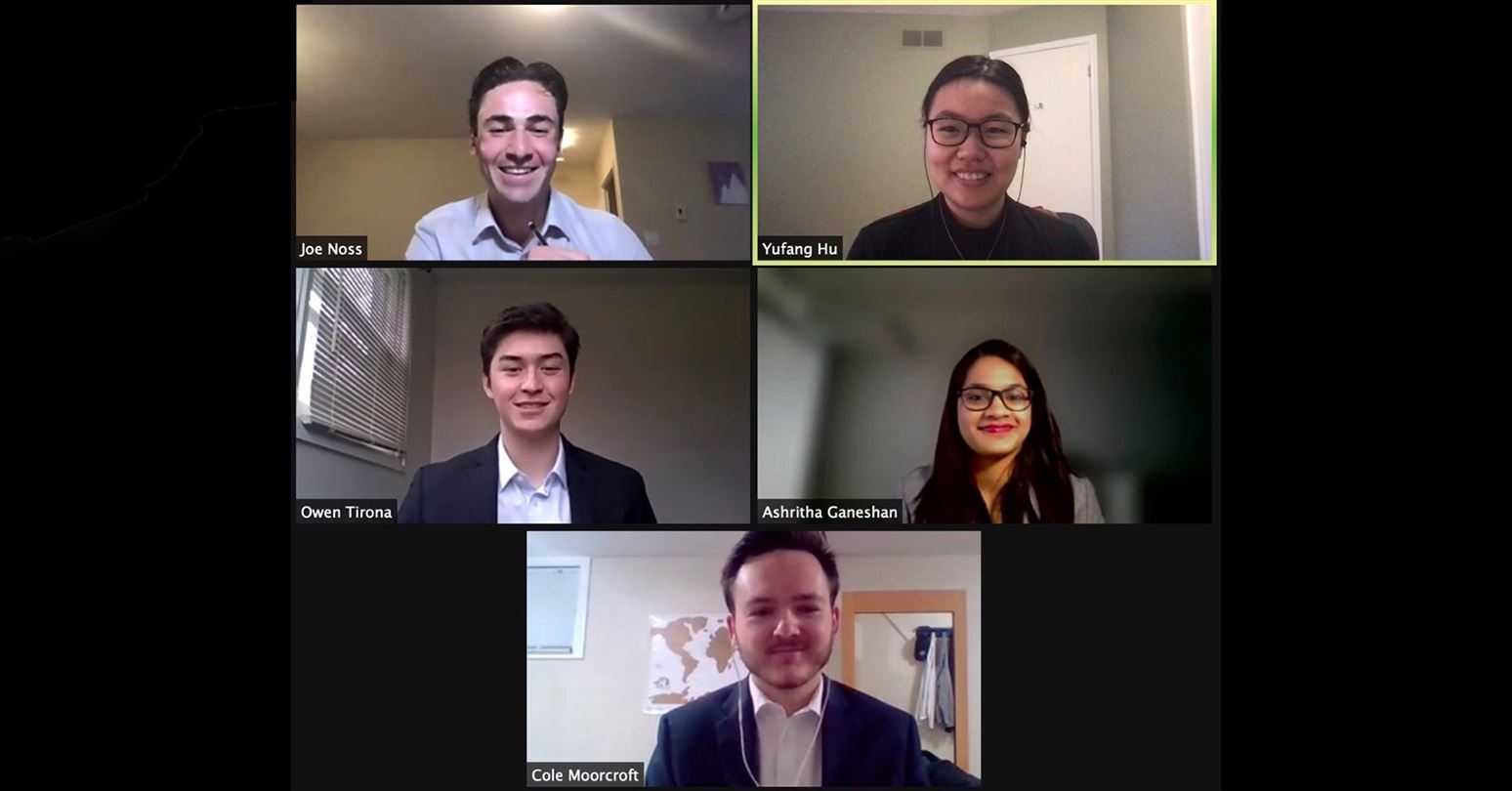Yufang Hu is an MSc ’21 candidate who is passionate about identifying patterns and deriving insights from data. In the article below, she writes about her experience with Ivey’s Hack the Case analytics competition, held virtually April 8-20.
Before I even started the Business Analytics program at Ivey last September, I had already heard great things about Hack the Case from friends and YouTube videos posted by Ivey. I was really excited to participate in this competition as I know this is one of the program’s unique value propositions – to get students engaged and comfortable with handling real-world big data.
This two-week case competition was held by Ivey and its corporate partners – SAS, Scotiabank, and Deloitte – right after our second term of classes ended in late March. We were tasked with analyzing Scotiabank’s loyalty programs on the SAS server and asked to provide recommendations to increase customer engagement and maximize return on investment (ROI). What really excited me right from the beginning was the opportunity to get our hands on the powerful SAS platform. I mean, who would say no to having a new skill under your belt? I was also very much looking forward to building connections with the professionals from the corporate partner firms. We received three days of SAS training from Cristina Anton where we familiarized ourselves with the data analytics tool, and a How to crack a case session from Deloitte, before the case was unveiled on day four.
Since our cohort participated in Hack the Case in a virtual setting, we missed out on some of the fun aspects of the competition. For example, we were not able to collaborate with our group members in person or do any in-person team bonding. We also did not get to interact with the corporate partners in person or deliver our presentations at the Deloitte Toronto office.
In spite of challenges, the great efforts put in by the faculty, corporate partners, and the students definitely made this experience as meaningful and unforgettable, if not more than that of the previous years, by the end.
From classroom to real life
Day four marked the first day of the hackathon. I was excited to meet with my team and develop a plan to tackle the case. I got really lucky as my teammates were all in the same time zone, so it was easier for us to schedule meetings.
After reading through the case and looking at the data, we did not panic thanks to the countless cases we had done in the Ivey classrooms. Notably, the course that helped us the most during the competition was Big Data Analytics. We followed the three golden steps we learned from that course to analyze the data: finding variable correlations, plotting data to identify patterns, and performing in-depth analysis on data to further gain insights.
On day five of the competition, we started to experience unforeseen data access issues. Instead of panicking, the students, Ivey faculty, and technical support teams all quickly swung into action. We quickly pivoted to conducting qualitative analysis and finding alternative ways to access the server. I have to say, this obstacle definitely brought out the resilience, adaptability, and creativity in us.
Throughout the competition, my team members contributed to the work to the best of their abilities and although at the end we did not advance into the final round, I was still very proud of what we put forward to the judges.
Three lessons learned from Hack the Case
On the final day of the competition, I had the pleasure of watching the finalists present their recommendations. I was deeply impressed by their problem-solving skills and innovative solutions. With a mindset of continuous learning, I jotted down some key points that I learned:
- The recommendations should align well with management preferences, as well as the macro market trends;
- Before making any recommendations, it is key to have a fair understanding of your competitors’ strategies; and,
- Understanding and clearly stating the problem at hand before diving into analysis and solutions can help with establishing a clear line of logical thinking.
Overall, I really appreciated this opportunity as we not only learned a lot about SAS and the technical tools, we also further developed time management, teamwork as well as problem-solving skills in the short span of two weeks. I am confident that Ivey has prepared us well for challenges in the real world.
